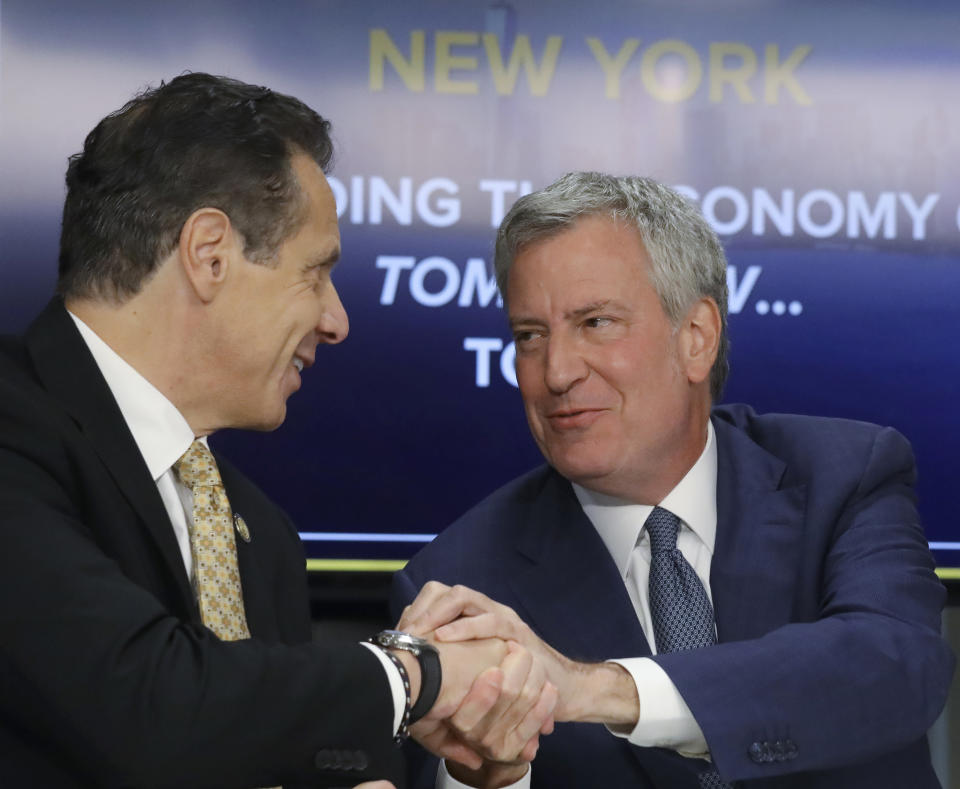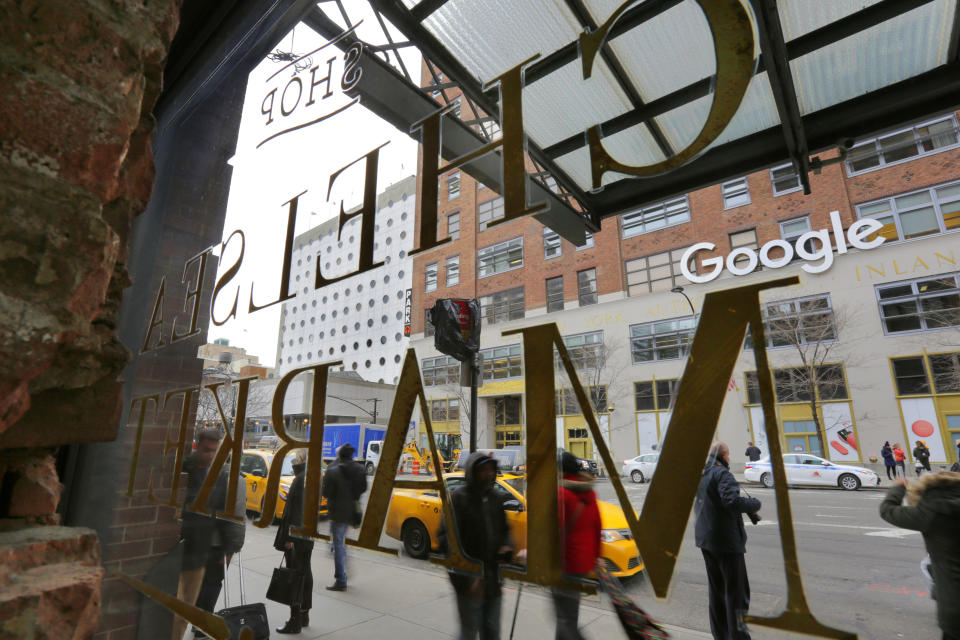Amazon abandoning NYC headquarters is a cautionary tale for big tech
Amazon’s (AMZN) abandonment of its proposed HQ2 location in New York City is a cautionary tale for tech companies looking to open offices in new cities, several members of the tech community told Yahoo Finance.
Blame the situation partly on Amazon’s 14-month search for its second headquarters: a showy, pageant-like affair involving 238 proposals from cities and towns across North America. At the time, it read like a genius PR move: the HQ2 search generated hundreds of breathless stories about the positive impact Amazon could bring to a new town or city, including the creation of thousands of new jobs.
“In retrospect, had they not made such public fanfare, I suspect the backlash they faced might have been less,” acknowledged Matt Nichols, a general partner at the San Francisco-based venture capital firm Commerce Ventures. “They sort of created the PR storm on purpose, and I think that probably only heightened the awareness of it with the community that led to the cause of them pulling out.”
Too arrogant for its own good?
Charlene Li, founder and principal analyst of the San Francisco-based Altimeter Group, contended the HQ2 search sustained the public’s perception that tech companies had become too arrogant for their own good.

“I think it’s a continuing trend of how companies are running smack into the face of communities they have ignored,” contended Li. “The reality is when you move into a city, you have to build relationships. But Amazon basically marched in with an attitude of, ‘Hey, you will be lucky to get us.’ What we are seeing is tech companies are no longer the knight in shining armor. ‘Oh, let me bestow my benevolence upon you’ — 25,000 jobs — but only if you do my bidding.”
Of course, the benefits for Amazon of setting up shop in Long Island City also became abundantly clear. In addition to having access to some of the country’s top tech talent, the tech giant would receive nearly $1.53 billion in incentives, contingent on the company creating 25,000 new jobs with an average salary of $150,000. (Amazon, meanwhile, will receive roughly $800 million in public incentives from Virginia for bringing a campus to Crystal City.)
Amazon, for its part, expressed disappointment in a statement issued on Thursday.
“While polls show that 70% of New Yorkers support our plans and investment, a number of state and local politicians have made it clear that they oppose our presence and will not work with us to build the type of relationships that are required to go forward with the project we and many others envisioned in Long Island City,” the statement read. “We are disappointed to have reached this conclusion — we love New York, its incomparable dynamism, people, and culture — and particularly the community of Long Island City, where we have gotten to know so many optimistic, forward-leaning community leaders, small business owners, and residents.”
Amazon’s problems stand in contrast with Google’s and Apple’s recent expansion plans into New York City, which haven’t faced nearly the same level of opposition so far. Google (GOOG, GOOGL) in December announced plans to spend over $1 billion to build a new New York City campus, while Apple (AAPL) that same month also announced that it would add “hundreds” of workers to its New York City workforce.
“One of the richest companies on planet earth shouldn't be asking for handouts!” said Marco Zappacosta, CEO of Thumbtack, a San Francisco-based startup. “The Amazon decision highlights the risky proposition of local governments courting big corporate headquarters instead of investing in small businesses, which are much more reliable local job creators.”
Not enough local outreach?
Amazon may have also failed to perform enough outreach to politicians and local leaders to get them onboard. When a big oil company wants to enter a new community, it may take years, if not decades, to formulate and execute their plan, Li pointed out. But Amazon performed its entire HQ2 search in just 14 months. So maybe it’s not all that surprising the day after Amazon announced it was splitting up HQ2 into two campuses this November, local politicians, community groups, and other protesters rallied against HQ2 in Long Island City, several blocks away from the proposed site of Amazon’s campus.

Kurt Schrader, CEO and co-founder of the New York City-based startup Clubhouse, reiterated Amazon should have done more in the way of local outreach prior to announcing its final picks.
“Everyone I know was excited about Amazon coming to town and at the same time everyone I know thought that they handled the process poorly,” said Schrader, who added there were a number of “unforced errors” that made the entire deal easy to attack, like Amazon’s plans for a private helipad. “Once they'd made the decision to come to Long Island they should have reached out to the politicians and local leaders there to get them onboard with the plan. I would have liked to see the initial announcement come from Bezos in-person with local leaders by his side.”
But while Amazon said on Thursday it had no plans to re-open its HQ2 search, don’t be surprised if that changes down the road.
“This could be fake news or a negotiating tactic,” suggested Dave Hendricks, CEO of the Austin, Texas-based startup Vertalo. “Amazon doesn’t scare easily. New York is an emerging center of tech and since it’s so much closer to Wall Street's deal makers, marketers on Madison Avenue, and the media business, it continues to make sense for Amazon to have a presence there. Bezos is competing globally, and Seattle isn’t enough. I don’t think that Jeff Bezos backs down this easily.”
Bezos could prove pundits wrong, but he’ll have to deal with New York politicians, who have soured on Amazon since the news broke on Thursday.
“You have to be tough to make it in New York City,” New York City Mayor Bill de Blasio told Yahoo Finance in a statement. “We gave Amazon the opportunity to be a good neighbor and do business in the greatest city in the world. Instead of working with the community, Amazon threw away that opportunity.”
More from JP:

 Yahoo Finance
Yahoo Finance 
